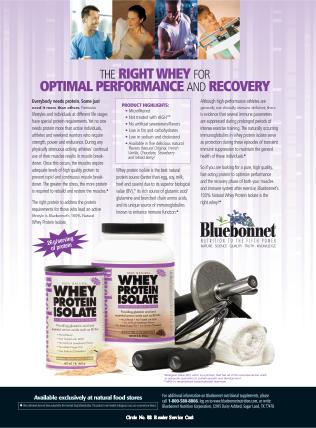
Natural products are expensive. Most shoppers think so. If you lower your prices to match conventional products, will shoppers change their minds? Probably not. Here’s the true story of one retailer who tried.
Natural products have always sold well alongside fresh produce, and farm stands are one of the most vibrant outlets for natural and organic foods. When I was sales manager for natural foods distributor Stow Mills (now merged with United Natural Foods, Inc.), one of our customers, we’ll call him Jack, had a successful farm stand. Across the street from the stand was a conventional supermarket. One day while I was visiting his store, Jack told me that his customers believed that his prices on produce were higher than the supermarket, even though Jack knew they weren’t.
No matter how hard he tried to convince his customers that his produce prices were as good as or better than the supermarket, he could not change their minds. Every week, Jack would walk across the street, write down the prices of peas, carrots, apples, bananas, lettuce, celery and all, and then adjust his prices to match or beat the supermarket. When he asked his customers what they thought about his prices, they would still always say, “Well, your prices are a little higher than the supermarket, but your quality is better.” Part of the reason Jack was so frustrated was that, unbeknownst to his customers, most of the produce he stocked came from the same supplier as the supermarket!
After years of matching the supermarket’s produce prices, with no change in his customers’ perceptions, Jack was near the end of his rope. He decided to take out full-page ads in the food section of his local newspaper for an entire month, blaring that his prices beat the supermarket. As you can imagine, this was extremely expensive. But Jack wanted to make certain that everyone in his trade area of 11,000 households knew his prices were competitive. After the month-long campaign, Jack again asked his customers what they thought about his prices, and they said, “Well, your prices are a little higher than the supermarket, but your quality is better.”
 Closed Minds
Closed Minds
Why couldn’t Jack change his customers’ minds? Psychology tells us that, in order to make sense of the world, we categorize things. Winters are cold. Summers are hot. Fast food is cheap. Natural food is expensive. We don’t like to think more than we have to, so we put things into categories where we can expect to see certain characteristics.
This is why brands are important. Brands allow us to assume certain things. We trust that Lexus is a quality car, but not a Yugo. We trust that food from Whole Foods Markets is fresh, but not food from 7-11 or Circle K. What do we assume about farm stands? The produce is fresh off the farm, that we are closer to the farmer and that the produce is higher quality than what comes from an agribusiness-scale supermarket. Even if these things are not true, we tend to believe they are because they fit our assumptions about farm stands. And if someone convinces us a particular farm stand has lower prices, we are still likely to believe that this is an exception, and won’t change our assumptions about farm stands in general.
Why do you think Whole Foods, even though it is lowering prices aggressively, is having such a tough time ditching the “Whole Paycheck” nickname? Or why did Wal-Mart’s sales tank during the 2004 Christmas season when it stopped discounting as heavily as usual but tried instead to tell its customers that shopping at Wal-Mart was a warm fuzzy, value-added experience (complete with TV commercials showing Wal-Mart associates hugging shoppers in the aisles)? Now we know why. These moves don’t fit our category assumptions for Whole Foods as a quality store or Wal-Mart as a discounter.
Opening Minds
Why is Trader Joe’s successful? Because Trader Joe’s created a new model we’ll call “affordable indulgence.” Customers think they are getting gourmet quality on the cheap. And it looks like Sunflower Farmers Market, with 20 stores in the western U.S., is also carving out a new lower-price position for fresh and natural, with its slogan, “Serious food—silly prices.” Like Trader Joe’s, this is an entirely new model that forces us to rethink our beliefs about the price of quality.
So, do you want to play in this new re-pricing game? To be successful, you will need to be as gutsy as Trader Joe’s and Sunflower Farmers Market. Otherwise, if you just drop your prices, but leave your store name, location and merchandising the same, don’t expect customers to change their minds about your value. They will still believe you carry expensive natural products, just like Jack’s farm stand.
Yes, you should offer bold, but temporary, sales and promotions, particularly now when the recession is squeezing budgets. But installing a permanent discount program to combat the temporary sales decline, even if you call it a “loyalty” program, won’t bring in new customers, won’t make your business more profitable, but will damage your profit structure. Although it appears we’ll be in this economic downturn for a while, all recessions do eventually end. I promise. Discount programs, on the other hand, tend to stick around forever.
Believe in Yourself
What are you worth to your customers? What is the price of the value you provide? Many independents lack confidence that the knowledge, caring and individual customer attention they give adds enough value to justify fair, non-discounted prices. Hurt by shoppers who complain about prices and shop elsewhere, some independents have withdrawn into their shells, distrusting and refusing to interact with customers.
But “one-stop shopping” was always a myth, and is even less true today as shoppers increase the number of stores they shop on a treasure hunt for quality, new taste experiences and fun. If independent natural products retailers react to shoppers’ adventure-seeking behavior by retreating, not educating, and not empathizing with their customers, more customers will defect even faster.
Winning Strategy
Because most independent retailers cannot compete with larger stores on price or convenience, the strategy that is open to them is to add value through human interaction, face-to-face conversation, using real caring and knowledge. Fortunately, today’s consumer is seeking a retail partner to deliver quality shopping experiences.
 Independents that don’t devote themselves to creating a great shopping experience become an uninvolved intermediary, passing the manufacturer’s plans and schemes through to the customer without adding value. This is a recipe for irrelevance because manufacturers already sell to every channel, and customers already shop everywhere.
Independents that don’t devote themselves to creating a great shopping experience become an uninvolved intermediary, passing the manufacturer’s plans and schemes through to the customer without adding value. This is a recipe for irrelevance because manufacturers already sell to every channel, and customers already shop everywhere.
Retailers who are great at anticipating customer needs and wants increase the value, and therefore the price that customers will pay for the products. Love your customers and help them solve their problems and they will pay you a fair, non-discounted price. Make your knowledge known to your community, and new customers will seek you out and help you grow your business. Have faith that your best customers do value the emotional connection you provide as you help them get well. Good health is priceless. Customers will reward those who help them achieve it. WF
Jay Jacobowitz is president and founder of Retail Insights®, a professional consulting service for natural products retailers established in 1998, and creator of Natural Insights for Well Being®, a holistic consumer marketing service designed especially for independent natural products retailers. With 31 years of wholesale and retail industry experience, Jay has assisted in developing over 800 successful natural products retail stores in the U.S. and abroad. Jay is a popular author, educator, and speaker, and is the merchandising editor of WholeFoods Magazine, for which he writes Merchandising Insights and Tip of the Month. Jay also serves the Natural Products Association in several capacities. He can be reached at (800)328-0855 or via e-mail at jay@retailinsights.com.
Published in WholeFoods Magazine, March 2009










